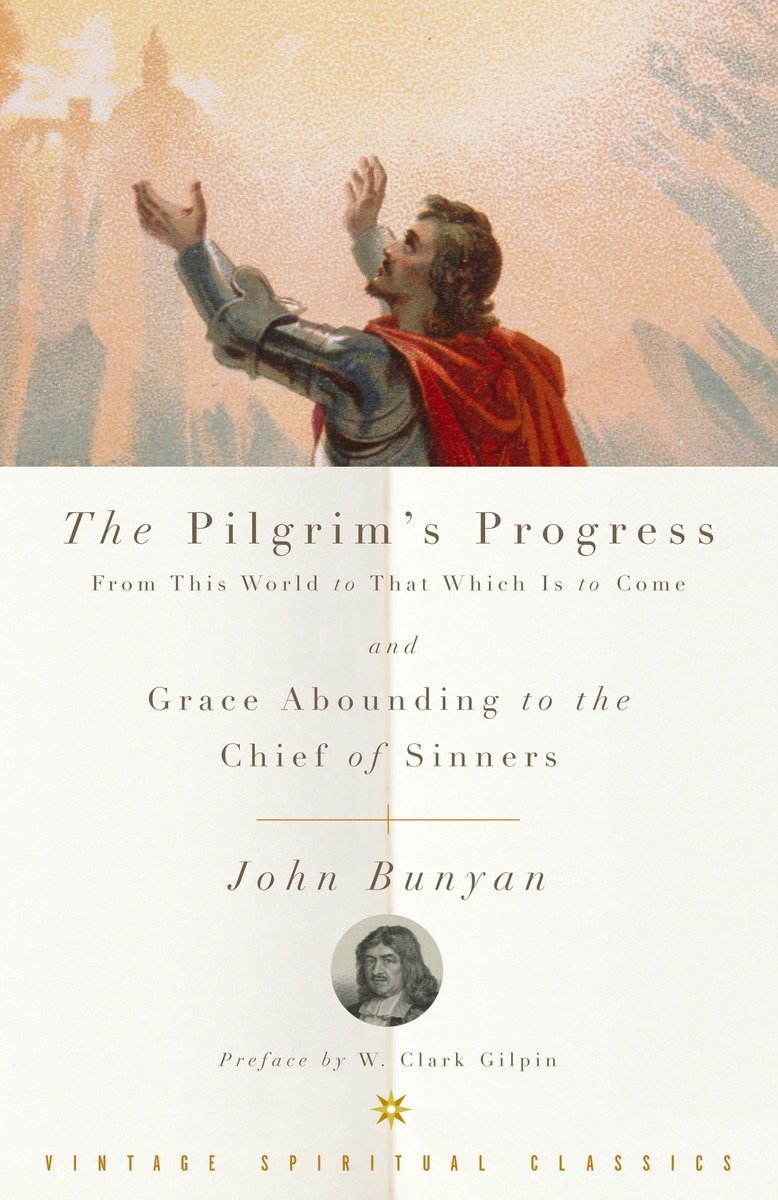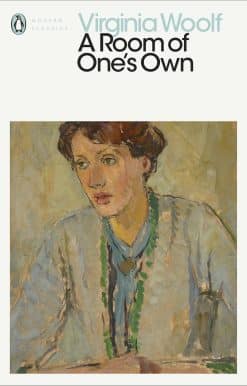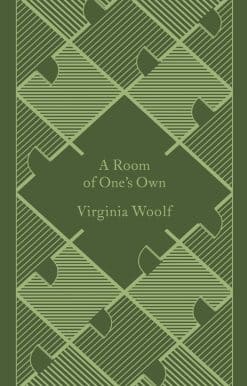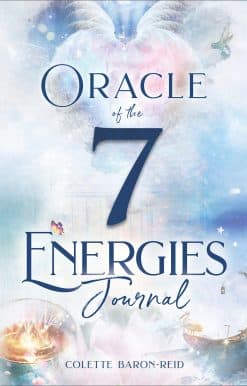No gift registry found click here to create new registry
Cart contain Gift Registry Items cannot add products
The Pilgrim’s Progress and Grace Abounding to the Chief of Sinners
14.00 JOD
Please allow 2 – 5 weeks for delivery of this item
Add to Gift RegistryDescription
Now available together in a single volume, these two classics were written by seventeenth-century England’s most famous prisoner of conscience, Baptist John Bunyan (1628-1688). Imprisoned for twelve years for his preaching, he wrote first a dramatic allegory of Christian life and followed it with the compelling story of his own conversion. Both have been beloved by generations of spiritual seekers and still speak powerfully to modern readers. Pilgrim’s Progress recounts the perilous journey of Christian from the City of Destruction to the Celestial City, and in its second part, follows the journey of his wife, Christiana. Grace Abounding to the Chief of Sinners is Bunyan’s fervent memoir of his own spiritual regeneration. Both works are enduring masterpieces of English prose, uniting the simple power of Biblical language with the vivid bluntness of untutored speech.
Additional information
| Weight | 0.32 kg |
|---|---|
| Dimensions | 2.11 × 13.26 × 20.3 cm |
| PubliCanadation City/Country | USA |
| Author(s) | |
| Format | |
| language1 | |
| Pages | 400 |
| Publisher | |
| Year Published | 2004-4-13 |
| Imprint | |
| ISBN 10 | 0375725687 |
| About The Author | John Bunyan (1628—88), originally a tinker by trade, spent many years imprisoned for unlicensed preaching, becoming a hero to the Baptist sect.W. Clark Gilpin is the former dean of the University of Chicago Divinity School. |
| Excerpt From Book | The Author's Apology for His BookWhen at the first I took my pen in handThus for to write, I did not understandThat I at all should make a little bookIn such a mode; nay, I had undertookTo make another; which, when almost done,Before I was aware, I this begun.And thus it was: I, writing of the wayAnd race of saints, in this our gospel day,Fell suddenly into an allegoryAbout their journey, and the way to glory,In more than twenty things which I set down.This done, I twenty more had in my crown;And they again began to multiply,Like sparks that from the coals of fire do fly.Nay, then, thought I, if that you breed so fast,I'll put you by yourselves, lest you at lastShould prove ad infinitum, and eat outThe book that I already am about.Well, so I did; but yet I did not thinkTo show to all the world my pen and inkIn such a mode; I only thought to makeI knew not what; nor did I undertakeThereby to please my neighbour: no, not I;I did it my own self to gratify.Neither did I but vacant seasons spendIn this my scribble; nor did I intendBut to divert myself in doing thisFrom worser thoughts which make me do amiss.Thus I set pen to paper with delight,And quickly had my thoughts in black and white.For, having now my method by the end,Still as I pulled, it came; and so I pennedIt down: until it came at last to be,For length and breadth, the bigness which you see.Well, when I had thus put mine ends together,I showed them others, that I might see whetherThey would condemn them, or them justify:And some said, Let them live; some, Let them die;Some said, John, print it; others said, Not so;Some said it might do good; others said, No.Now was I in a strait, and did not seeWhich was the best thing to be done by me:At last I thought, Since you are thus divided,I print it will, and so the case decided.For, thought I, some, I see, would have it done,Though others in that channel do not run:To prove, then, who advised for the best,Thus I thought fit to put it to the test.I further thought, if now I did denyThose that would have it, thus to gratify;I did not know but hinder them I mightOf that which would to them be great delight.For those which were not for its coming forth,I said to them, Offend you I am loath,Yet, since your brethren pleasèd with it be,Forbear to judge till you do further see.If that thou wilt not read, let it alone;Some love the meat, some love to pick the bone.Yea, that I might them better palliate,I did too with them thus expostulate:May I not write in such a style as this?In such a method, too, and yet not missMy end, thy good? Why may it not be done?Dark clouds bring waters, when the bright bring none.Yea, dark or bright, if they their silver dropsCause to descend, the earth, by yielding crops,Gives praise to both, and carpeth not at either,But treasures up the fruit they yield together;Yea, so commixes both, that in her fruitNone can distinguish this from that: they suitHer well when hungry; but, if she be full,She spews out both, and makes their blessings null.You see the ways the fisherman doth takeTo catch the fish; what engines doth he make!Behold! how he engageth all his wits;Also his snares, lines, angles, hooks, and nets;Yet fish there be, that neither hook, nor line,Nor snare, nor net, nor engine can make thine:They must be groped for, and be tickled too,Or they will not be catch'd, whate'er you do.How doth the fowler seek to catch his gameBy diverse means! all which one cannot name:His guns, his nets, his lime-twigs, light, and bell;He creeps, he goes, he stands; yea, who can tellOf all his postures? Yet there's none of theseWill make him master of what fowls he please.Yea, he must pipe and whistle to catch this;Yet, if he does so, that bird he will miss.If that a pearl may in a toad's head dwell,1And may be found too in an oyster-shell;If things that promise nothing do containWhat better is than gold; who will disdain,That have an inkling of it, there to lookThat they may find it? Now, my little book(Though void of all these paintings that may makeIt with this or the other man to take)Is not without those things that do excelWhat do in brave but empty notions dwell."Well, yet I am not fully satisfied,That this your book will stand, when soundly tried."Why, what's the matter? "It is dark." What though?"But it is feignèd." What of that? I trowSome men, by feignèd words, as dark as mine,Make truth to spangle and its rays to shine."But they want solidness." Speak, man, thy mind."They drown the weak; metaphors make us blind."Solidity, indeed, becomes the penOf him that writeth things divine to men;But must I needs want solidness, becauseBy metaphors I speak? Were not God's laws,His gospel laws, in olden times held forthBy types, shadows, and metaphors? Yet loathWill any sober man be to find faultWith them, lest he be found for to assaultThe highest wisdom. No, he rather stoops,And seeks to find out what by pins and loops,By calves and sheep, by heifers and by rams,By birds and herbs, and by the blood of lambs,God speaketh to him; and happy is heThat finds the light and grace that in them be.Be not too forward, therefore, to concludeThat I want solidness, that I am rude;All things solid in show not solid be;All things in parables despise not we,Lest things most hurtful lightly we receive,And things that good are, of our souls bereave.My dark and cloudy words, they do but holdThe truth, as cabinets enclose the gold.The prophets usèd much by metaphorsTo set forth truth; yea, who so considersChrist, his apostles too, shall plainly see,That truths to this day in such mantles be.Am I afraid to say that holy writ,Which for its style and phrase puts down all witIs everywhere so full of all these things(Dark figures, allegories), yet there springsFrom that same book that lustre, and those raysOf light, that turns our darkest nights to days?Come, let my carper to his life now look,And find there darker lines than in my bookHe findeth any; yea, and let him know,That in his best things there are worse lines too.May we but stand before impartial men,To his poor one I dare adventure ten,That they will take my meaning in these linesFar better than his lies in silver shrines.Come, truth, although in swaddling clouts, I find,Informs the judgement, rectifies the mind;Pleases the understanding, makes the willSubmit; the memory too it doth fillWith what doth our imaginations please;Likewise it tends our troubles to appease.Sound words, I know, Timothy is to use,And old wives' fables he is to refuse;But yet grave Paul him nowhere did forbidThe use of parables; in which lay hidThat gold, those pearls, and precious stones that wereWorth digging for, and that with greatest care.Let me add one word more. O man of God,Art thou offended? Dost thou wish I hadPut forth my matter in another dress?Or that I had in things been more express?Three things let me propound; then I submitTo those that are my betters, as is fit.1. I find not that I am denied the useOf this method, so I no abusePut on the words, things, readers; or be rudeIn handling figure or similitude,In appreciation; but, all that I may,Seek the advance of truth this or that way:Denied, did I say? Nay, I have leave(Example too, and that from them that haveGod better pleased, by their words or ways,Than any man that breatheth now-a-days)Thus to express my mind, thus to declareThings unto thee that excellentest are.2. I find that men (as high as trees) will writeDialogue-wise; yet no man doth them slightFor writing so: indeed, if they abuseTruth, cursèd be they, and the craft they useTo that intent; but yet let truth be freeTo make her sallies upon thee and me,Which way it pleases God; for who knows how,Better than he that taught us first to plough,To guide our mind and pens for his design?And he makes base things usher in divine.3. I find that holy writ in many placesHath semblance with this method, where the casesDo call for one thing, to set forth another;Use it I may, then, and yet nothing smotherTruth's golden beams: nay, by this method mayMake it cast forth its rays as light as day.And now before I do put up my pen,I'll show the profit of my book, and thenCommit both thee and it unto that handThat pulls the strong down, and makes weak ones stand.This book it chalketh out before thine eyesThe man that seeks the everlasting prize;It shows you whence he comes, whither he goes;What he leaves undone, also what he does;It also shows you how he runs and runs,Till he unto the gate of glory comes.It shows, too, who set out for life amain,As if the lasting crown they would obtain;Here also you may see the reason whyThey lose their labour, and like fools do die.This book will make a traveller of thee,If by its counsel thou wilt rulèd be;It will direct thee to the Holy Land,If thou wilt its directions understand:Yea, it will make the slothful active be;The blind also delightful things to see.Art thou for something rare and profitable?Wouldst thou see a truth within a fable?Art thou forgetful? Wouldst thou rememberFrom New Year's day to the last of December?Then read my fancies; they will stick like burrs,And may be, to the helpless, comforters.This book is writ in such a dialectAs may the minds of listless men affect:It seems a novelty, and yet containsNothing but sound and honest gospel strains.Wouldst thou divert thyself from melancholy?Wouldst thou be pleasant, yet be far from folly?Wouldst thou read riddles, and their explanation?Or else be drownèd in thy contemplation?Dost thou love picking meat? Or wouldst thou seeA man i' the clouds, and hear him speak to thee?Wouldst thou be in a dream, and yet not sleep?Or wouldst thou in a moment laugh and weep?Wouldst thou lose thyself and catch no harm,And find thyself again without a charm?Wouldst read thyself, and read thou knowst not what,And yet know whether thou art blest or not,By reading the same lines? Or, then come hither,And lay my book, thy head, and heart together.John Bunyan |
Only logged in customers who have purchased this product may leave a review.
Related products
-
On backorder 2-5 Weeks to Arrive
Add to Gift Registry5.99 JOD -
On backorder 2-5 Weeks to Arrive
Add to Gift Registry12.99 JOD -
On backorder 2-5 Weeks to Arrive
Add to Gift Registry15.00 JOD -
On backorder 2-5 Weeks to Arrive
Add to Gift Registry






Reviews
There are no reviews yet.